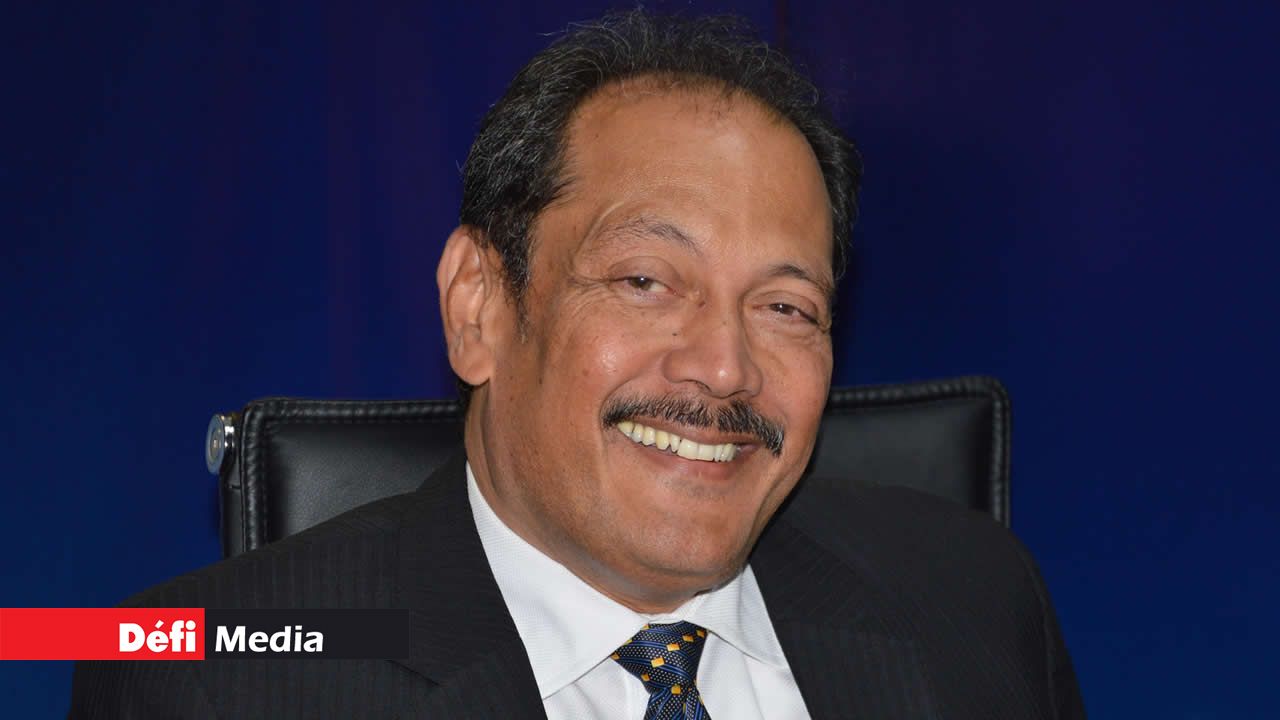
In the 2017/2018 Budget last 8th June 2017, the Prime Minister and Minister of Finance and Economic Development announced the creation of an Economic Development Board (EDB) to ensure greater coherence and effectiveness in the implementation of the country’s development policies and strategic actions.
On 19th July 2017, the Economic Development Board Bill was debated and voted by members of Parliament. The Economic Development Board is now a reality and time has come for implementation.
The Economic Development Board Act contains four key objectives, namely to:
a) provide strong institutional support for strategic economic planning and ensure greater coherence and effectiveness in economic policy formulation;
b) promote Mauritius as an attractive investment and business center, a competitive export platform as well as an international financial centre;
c) act as the main institution responsible for country branding for investment promotion; and
d) facilitate both inward and outward investment and ensure a conducive business environment.
This demonstrates Government’s commitment to rethink the future economic landscape of Mauritius in a more cohesive manner. It will inevitably require a remodeling of our institutions to attain this goal.
This article analyses the key success factors for an effective EDB as well as the functions that it must exercise to adapt to an ever-changing global economic landscape marked by innovation and disruptive technologies.
Why an EDB?
Our economy, through foresight and informed decisions, has always been able to ward off adverse tides and rise above the negative confluences of the global economic tailwinds. However, to achieve our aspiration to become a high-income country within a complex economic landscape increasingly influenced by uncertainties at the international level will require a paradigm shift in our thinking process and focus on economic development strategy, with planning, proactivity and convergence at its core.
The rationale behind the creation of the EDB is to initiate a reengineering curve to build strong institutional capacity, to instill innovation and creativity, to synergize and cross-fertilize functions, to optimize and coalesce resources towards fulfilling the ambition of our country through high performance and result-oriented driven economic planning.
It is high time to create the required institutional convergence that will drive the nation’s vision, ensure prompt implementation of economic measures, spark off private and public initiatives and create enablers to fulfill our national ambition. The EDB, in the way it is being set up, is in line with this imperative. Far from being a mere merger of existing institutions, the EDB is set to be the umbrella institution that will transcend political short-term strategies and grow into a national organisation geared towards economic planning and visioning. The EDB will be a unique overarching body with a new mandate to strategize and monitor the implementation of decisions and measures to achieve the nation’s vision of becoming a modern, innovation-driven and high income economy.
To achieve this, the EDB will be empowered with additional regulatory functions and responsibilities. As a country aspiring to scale up to a new level of prosperity through the adoption of innovative and disruptive technologies, there needs to be a paradigm shift in our way of doing business. Far from a ‘wait and see approach’, we need a strong institution that encompasses the whole national ecosystem, its strengths and weaknesses, including international trends, threats and opportunities to be able to proactively, promptly, yet methodically take action to grow our economy.
Staffed with qualified, seasoned and motivated professionals with a commitment for the long-term prosperity of Mauritius, the EDB will be the driver unrolling our country’s economic master-plan.
Functions of the EDB – Think and plan beyond, but act today
The Economic Development Board Act sets out the main functions of the EDB. This board has as its main objectives to set the goals, objectives and priorities of Mauritius in terms of economic development, and accordingly advise, design and support implementation of short, medium and long-term policies and the enablers to achieve them. As an apex body for economic development and planning operating under the aegis of the Prime Minister’s office, the EDB will synergize efforts across all ministries and with private stakeholders to meet the set goals.
The EDB will have the adequate powers and capacity to perform research and planning to analyze national and global economic, technological and social trends, and accordingly shape and advise on strategies and policies. Issues like Brexit, GST or OECD’s initiatives will be addressed in a proactive and anticipatory manner not only to manage and mitigate adverse effects but harness opportunities. EDB will have some degree of influence over other government agencies and function as the top coordinating organisation for economic planning and development.
By using well-established and widely used techniques of national economic planning, EDB will contribute to prepare the Mauritian society for change and facilitate the transition of Mauritius to a high-income economy. These valuable techniques of national economic planning (foresight studies, scenario analysis, macroeconomic modeling, prospective studies, stakeholder consultation) will provide the country with information, indicator perspectives, in-depth objective analysis, trends and models.
EDB will have access to existing data, quantitative tools and methodologies that are presently in use in other organizations and ministries. In so doing, EDB will help transcend any partisan dimension affecting major strategic choices, debates and controversies, and tackle them as issues of national interest.
Institutional remodeling to address challenges and seize future opportunities
The creation of the EDB does not boil down to amalgamating three or four existing organizations that have heretofore worked in silos based on their respective mandate. As our economy matured, many institutions that contributed to shape contemporary Mauritius have flourished and then vanished. To name a few, MIDA, MEDIA, MFA or EPZDA have contributed their fair share towards national development. BOI and EM have succeeded them and have achieved their best during the last decade to serve the country’s ambitions.
As economies become more sophisticated, the demarcation between sectors become extremely thin and the need to synergize efforts and seize opportunities that have cross-sectoral economic impact become even more important. This is what occurred in Mauritius, necessitating the setting up of several institutions to better translate sectoral visions and opportunities into reality. The Mauritius Freeport Authority had been set up for the creation of a transshipment hub, the Board of Investment was created to drive foreign direct investment, and the Financial Services Promotion Agency was formed to promote Mauritius as a regional financial platform of excellence.
The creation of an overarching economic development body is now a logical and coherent move for a country like Mauritius that has built sophisticated economic sectors based on indispensable synergy among all socio-economic players. The EDB will therefore not amount to a simple fusion of the mandates of the Board of Investment, the Financial Services Promotion Agency, Enterprise Mauritius and the Mauritius Africa Fund. It will be more than the sum of its parts. The EDB is a new institution which closes gaps in the economic planning process and demonstrates the adoption of a new paradigm for investment and export promotion.
Today, more than ever, as we promote and strive to consolidate such industries like Fintech for example, the merger and synergizing of resources overseeing diverse sectors like financial services, ICT and innovation become essential. Furthermore, as we aspire to create new economic pillars like the Ocean Economy, sparse efforts are not efficient. There is need for consensus and a concerted policy that drives efforts in terms of research, capacity building, mobilization of funds and spatial planning.
This new economic dynamic, whereby the line between sectors is virtually fading and the mastery of the whole value chain of a sector is an imperative, makes the synergizing of efforts between investment promotion and trade organization essential.
The level of sophistication and openness of our economy requires swift and advised decision-making based on the capacity to anticipate not only the consequences of issues like Brexit, but even their very advent. The capacity to delineate a new economic vision will further impact the ability of appropriate enablers to convert intentions into realizations. This is the biggest challenge for any nation. Addressing it squarely will inevitably be the biggest benefit that the EDB will leave to posterity.
Double-Hatting Trade and Investment Activities
The creation of the EDB paves the way for double-hatting and brings coherence in investment and trade promotion initiatives.
It is incongruous to dissociate trade and investment promotion. The relevance of synchronizing investment and export policies is becoming globally more and more evident. With increasing global competition, the choice of a country for investment is closely linked to the country’s competitiveness in terms of its market access. When choosing a business location, investors want to have a degree of visibility and certainty regarding the future of their projects. The existence of a multiplicity of promotion organizations is an incongruity for the international business community. A single agency will send a clear signal to the business community for they will have a unique contact point for all their projects.
For instance, to promote investment in the fashion textile industry, it is important to master market access and export incentives which are a sine qua non for the investor. Similarly, the choice of establishing a fishing company is linked to the country’s incentives in terms of access and speed to markets.
Convergence in promotional functions will further ensure that there is rationalization in expenditure, thereby promoting a more judicious use of public funds and a wiser deployment of valuable resources. For instance, an inward investment proposition to invest in Mauritius in the manufacturing sector for export will be more credible to the foreign investor when the EDB staff will be able to convince the investor about the export potential of the proposed manufacturing project and the support that will be provided by EDB to tap into the export markets. Similarly, EDB trade missions will also be used to raise the profile of Mauritius as an inward investment destination.
Success in promoting investment and exports requires a careful deliberation about the efficient use of resources and the organization of these activities within Government that is consistent with the overriding goal of improving the business and investment climate. Beyond the substantial task optimization that can be secured through the conflation of trade and investment promotion, significant synergy can be generated through double-hatting that empowers staffs with a mastery of the whole value chain of a sector and provide them with tools to encourage investors to be trade ambassadors and vice-versa
Such a model has proved to be successful in several countries. A recent report by the International Trade Centre (ITC) on the UKTI highlights the benefits of the combination of trade and investment promotion functions. Concretely, FDI projects to the UK increased by 12%, while new jobs increased by 27%. Another paper by the ITC in 2014 has shown that more and more countries are moving towards merged institutions for trade and investment promotion. The paper shows that out of 50 trade and investment promotion organizations (TPOs) coming from high-income countries, 66% are merged, while 67% of TPOs from medium-sized and small countries are merged. This sustained trend demonstrates that merged institutions perform better than stand-alone institutions working in silos.
Adoption of innovation and disruptive technologies
According to the World Economic Forum, the world is currently experiencing a Fourth Economic Revolution induced by innovation. Indeed, in today’s business environment, there’s no word more powerful and all-encompassing than “Innovation.” No sectors are immune from its impact: Finance, education, healthcare, retail, transportation and other sectors. Every day, companies are introducing technologies that have the potential to reshape entire industries and the way people conduct their day-to-day transactions.
These regular and system-wide innovations will continue to crack the foundations of traditional industries for years to come. Both Government and businesses need to recognize this and make sure that they will be nimble enough to succeed wherever change takes them.
Innovation and creativity must be at the center of the EDB, an innovation-friendly institution where new ideas can thrive, and eventually evolve into new economic possibilities.
To succeed in its mission, the EDB needs to first develop a propensity to welcome innovation, and clear off any risk of myopia which afflicts silo organizations. Innovation will be at the core of EDB’s strategy and actions for enhancing economic performance and the overall competitiveness of the country.
The EDB will benefit from a wide gamut of specializations, skills and competencies regrouping economic development planning, investment facilitation, trade promotion, and marketing. It is an opportunity to harness these unique capabilities into a coherent system of innovation and exploit established linkages, business and trust relationships with investors, private enterprises, universities and public/private research institutes and other government organizations. These are the primary actors who contribute towards innovation for economic growth.
For economic development planners and policy-makers, the adoption of an innovation-based approach shall assist in the diagnostic of mismatches within the system, both among institutions and in relation to government policies which might thwart economic development. Policies which seek to improve networking among the actors and institutions in the system and which aim at enhancing the innovative capacity of firms, particularly their ability to identify and absorb technologies, are most valuable in this context.
The OECD proposes the concept of National Innovation Systems which rests on the premise that understanding the linkages among the actors involved in innovation is key to improving technology performance. The EDB will play a key role in driving the innovation initiative of the country.
The last two budget speeches placed lots of emphasis on innovation. A number of measures have driven the Mauritian innovation urge. With initiatives like the central repository system, the plug-and-play cloud system, the national incubator scheme, the Regulatory Sandbox Licence, the Innovation Box and the innovator occupation permit, Mauritius is well set to become a preferred centre for the testing and commercialization of new technologies for industrial development. The EDB will serve as a transmission belt to seize opportunities and synergize resources, to broaden networking, boost the creation of enablers for sensitization to new possibilities on a national level. For example, the application of financial technologies has brought about a breakthrough in the financial and ICT sectors. Mauritius is well positioned to become a regional centre of excellence in these fields. A component of the EDB’s mandate will be the coordination of the emergence of the FinTech sector through the creation of a Fintech Association which will ensure networking between local and international Fintech players, the creation of start-ups, while ensuring sensitization for the adoption of new technologies.
Proactive v/s Reactive Approach
The capability to innovate and bring innovation successfully to markets will be a determining factor in the global competitiveness of nations. One of the institutional characteristics that the EDB will develop and nurture for its success is boldness to experiment by trying various innovative policy instruments, and, thereafter, readjusting them in the light of experience and feedbacks. As Ron Dellums states, “failure is not a crime. The crime is not trying.”
The EDB will also be a forum for the advocacy of policies leading to robust, equitable, and environmentally sustainable growth. It will equally promote capacity strengthening and training in the field of economic and social policy-making.
The EDB will be empowered to drive research projects and lead initiatives with other stakeholders such as mismatch in the education and labor system, the impact of an ageing population, the blueprint for the financial sector, better articulating our Africa strategy, shifting towards Industry 4.0, harnessing disruptive technologies trends, mastering emerging opportunities such as Big Data, Internet of Things and Blockchain, planning infrastructural development, smart cities development and urban regeneration, opening of the economy, amongst others. In short, the EDB will ideally be involved in economic planning and research studies in all sectors where it can create an economic and business development potential or achieve a comparative advantage for the country.
In addition to strategic planning the EDB will be also mandated to implement trade and investment policies. This will send a coherent message to the international business community. The business facilitation agenda of the EDB will, on the other hand, ensure that projects are swiftly implemented by ensuring that time-frames are respected by licensing authorities. The powers given to the EDB will ensure that no undue delay is caused through the imposition of unnecessary and overly burdensome administrative procedures. The notion of accountability is also stressed, with relevant authorities being liable to show cause of delays or rejections. The national e-licensing platform will become a reality, curtailing inefficiencies and providing more certainty to the business community.
Country Branding is not just a promotional campaign
One of main purposes for the creation of the EDB is for it to act as the main institution responsible for country branding for investment promotion. There is an overwhelming need to achieve convergence in terms of promoting Mauritius and engage in a real country branding exercise. Japan, for one, brings to mind technology, top auto industry, household appliances, robotics, and consumer electronics. For Switzerland, it is luxury items, financial services, quality of life, famous watches like Rolex, Swatch, Tissot, Tag Heuer. How about Mauritius?
Country branding is far from just creating an appealing logo with a nice tagline. What matters is the DNA of the brand which resides in what a country is and what it aspires to become. Country branding is a wide and complex set of processes rather than an isolated promotional campaign to make the Mauritius tagline known to the world. To build a country branding, a complex analysis of the country image internally and externally is required, namely the image that the country has abroad and the self-image about national identity.
It is imperative to build a coherent and strategic brand narrative for Mauritius which will give a meaningful national identity to Mauritius. Brands are not what we tell people what we are, but what our community says about us. Therefore, international advocacy on Mauritius as a business destination will further enhance the brand image and engagement of Mauritius. Moreover, with the advent of new technologies, digital marketing and communication will have an essential role to play in the promotion and marketing of the new national identity set by the EDB.
Roadmap for the establishment of the EDB
The enactment of the EDB Act on Wednesday 19th July marks a milestone in the economic journey of Mauritius. The path ahead will be challenging and yet, this is the time for decisive actions. The translation of the EDB act into reality requires to be swift and organized.
The implementation schedule needs to be short so as build on the momentum and federate public and private sector support to this new organization. Furthermore, so as mitigate uncertainty and transitional period, the setting up and operationalization of the EDB needs to be achieved by latest December 2017.
Success of the EDB boils down to strong and committed leadership. To achieve so, the legislator has provided for a modern organization with clear separation of powers between the Prime Minister, the Chairperson, the Board and the Chief Executive Officer. Once the Board is constituted with the appointment of the Chairperson, the Vice Chairperson, members of the Board, the immediate task would be to search and appoint a high caliber respected professional to be the Chief Executive Officer.
It impends on the CEO to propose the most appropriate structure in line with the budget announcement with at its core the setting up of the three distinct directorates to spearhead the EDB. However, modern concepts of economic development such as competitive advantage, value chain, cluster analysis, and agglomeration economies will most probably be utilized and deployed to foster economic growth and to develop medium and long term plans.
Conclusion
This shift in our institutional landscape is reflective of Schumpeter’s gale, most widely known as the process of creative destruction. This involves a constantly evolutive and innovative mechanism forcing new players to replace outdated ones. The EDB positions itself today as a powerful and flexible standard bearer to embrace the opportunities in this mercurial global economic landscape and bring real and meaningful change to society. It should be deeply entrenched in our expectations that the magnitude of its responsibilities will inexorably be speckled with obstacles that may force us to stay away from adopted strategies. The real strength of the organization will be to be agile enough to rise above them and build a prosperous future.
By Gérard Sanspeur
Chairman, Board of Investment

Notre service WhatsApp. Vous êtes témoins d`un événement d`actualité ou d`une scène insolite? Envoyez-nous vos photos ou vidéos sur le 5 259 82 00 !





















![[Info Soirée] : « Finn arriv sa zur so lanniverser »](https://files.defimedia.info/sites/default/files/styles/square_thumbnail/public/thumbnail_230.jpg?itok=U3m7SBsU)